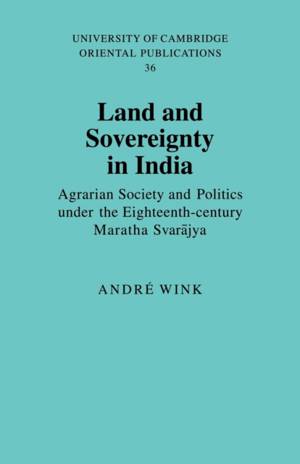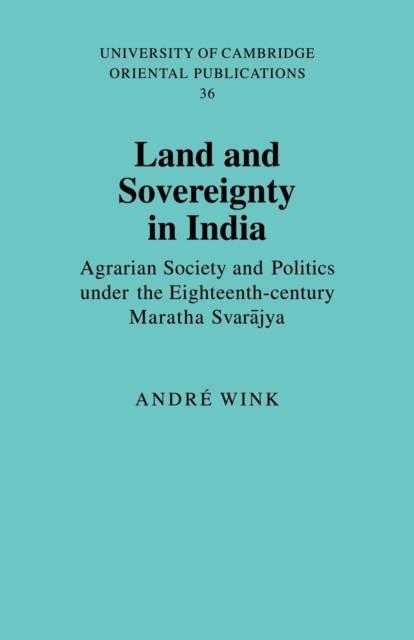
- Afhalen na 1 uur in een winkel met voorraad
- Gratis thuislevering in België vanaf € 30
- Ruim aanbod met 7 miljoen producten
- Afhalen na 1 uur in een winkel met voorraad
- Gratis thuislevering in België vanaf € 30
- Ruim aanbod met 7 miljoen producten
Zoeken
Land and Sovereignty in India
Agrarian Society and Politics Under the Eighteenth-Century Maratha Svar Jya
Andre Wink, Andr Wink
€ 85,45
+ 170 punten
Omschrijving
This original contribution to Indian history, focusing on contemporary and largely indigenous documents, introduces a set of concepts for the analysis of late Mughal rule. More specifically it examines the origins and development of the Maratha svardjya or 'self-rule' within the context of declining Muslim power. It traces the expansion of Maratha dominion to a process of fitna, a policy of 'shifting alliances' which was recurrent in the wake of Muslim expansion throughout its history. The book gives an interesting perspective on Hindu-Muslim relationships in the pre-British period as well as on the nature of the Indo-Muslim state and its most important successor polity, on its capacity for change and development in the intermediate sections of society, the land-tenurial system, the monetization of the economy, and on the fiscal system.
Specificaties
Betrokkenen
- Auteur(s):
- Uitgeverij:
Inhoud
- Aantal bladzijden:
- 440
- Taal:
- Engels
- Reeks:
- Reeksnummer:
- nr. 36
Eigenschappen
- Productcode (EAN):
- 9780521051804
- Verschijningsdatum:
- 3/12/2007
- Uitvoering:
- Paperback
- Formaat:
- Trade paperback (VS)
- Afmetingen:
- 140 mm x 216 mm
- Gewicht:
- 553 g

Alleen bij Standaard Boekhandel
+ 170 punten op je klantenkaart van Standaard Boekhandel
Beoordelingen
We publiceren alleen reviews die voldoen aan de voorwaarden voor reviews. Bekijk onze voorwaarden voor reviews.











